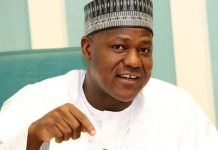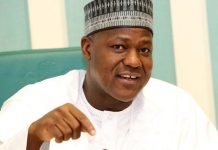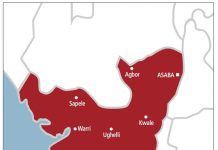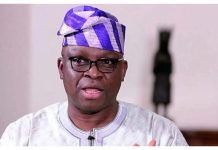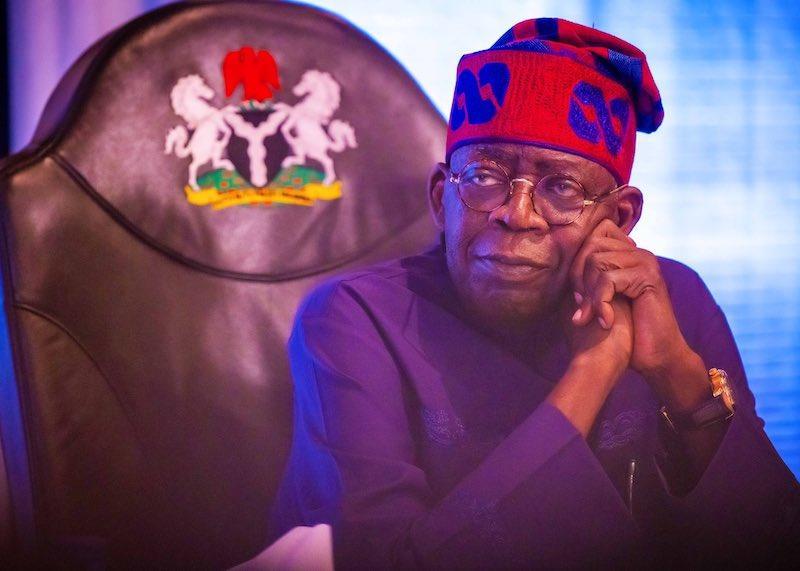
By – Abba Hamisu Sani
Africa-Press – Nigeria. The 2024 budget appropriation could be described as the historic one, the first of its kind by Ahmed Bola Tinubu as President of Nigeria.
According to the Nigerian constitution, each amount spent by the government should be appropriated and passed by the National Assembly into a law, assented by the President at the Federal level.
Budget presentations remain a national event every year as it is the responsibility of the executive arm of government to prepare it, through different submissions from its Ministries, departments, and agencies.
The 2024 budget proposal
Tinubu’s administration had earlier proposed 26.2 trillion Naira (32,516,691,620.00 dollars) as a 2024 appropriation but reviewed the Medium Term Expenditure Framework (MTEF) after the National Assembly recently approved it.
The Minister of Budget and National Planning, Atiku Bagudu, announced this on Monday 27th of November 2023 at the end of the Federal Executive Council meeting chaired by President Bola Tinubu.
He said that the new proposal which stands at 27.5 trillion Naira was legitimate because the appropriation was dependent on the final process that could be changed due to many variables including new priorities and Ministries Departments and Agencies presentations.
Mr. Bagudu said the MTEF approved by the National Assembly put the exchange rate at N700 per dollar and an oil price benchmark of 73.96 dollars.
He added that FEC revised the MTEF to use an exchange rate of 750 Naira to a dollar and oil price benchmark of 77.96 dollars to further fund the eight priority areas of the administration.
The minister said the 2024 forecast revenue would now be 18.32 trillion Naira( 22,736,862,232.00 dollars) higher than the 2023 budget and the supplementary budget’s provisions.
Loan facilities to support the budget
The Minister of Finance and Coordinating Minister of the Economy, Wale Edun, said that the federal government has secured funds from the African Development Bank (AfDB) for budget support.
He said that the one billion dollar funds from the AfDB would aid the effective implementation of the government reform policies as well as ensure transparency and accountability in the various tax reforms.
Mr. Edun added that it would be used in areas such as power and ensuring the efficient utilization of tax revenues, adding that it was not for project funding.
The over-ambitious budget and the reality of the fiscal estimate
Cheta Nwanze is a Public Affairs analyst. He said that It is a major concern that the relatively new government wants to further expand the budget deficit before consolidating its revenue generation plan and effectively putting it to work. Nigeria cannot continue to toe the path of fiscal irresponsibility. The government needs to conduct proper fiscal housekeeping and launch practical initiatives that can unlock the potential of the Nigerian economy.
Nwanze stated this in a write-up recently Published by Premium Times titled “2024 Budget: Persisting in the path of fiscal irresponsibility ?”
He added that a close look at some of the estimates throws up some urgent questions and concerns.
First, the daily oil production target of 1.78 million barrels in 2024 appears rather ambitious. Since 2022, Nigeria’s daily oil production has averaged 1.2 million barrels per day. Achieving a daily average increase of more than 500,000 barrels per day in one year is a substantial challenge, given the recent decline in oil production, activities of illegal refineries, oil theft, and weak market confidence in the government’s ability to reverse these and other unsavory economic trends.
The International Monetary Fund (IMF) has expressed doubts about the feasibility of the oil production target, describing it as “challenging” in a recent report. The reservation expressed by the IMF underlines the skepticism within the international community regarding the prospects of Nigeria’s economic turnaround in the short term.
It is expedient that the administration adheres to budgetary discipline and upholds fiscal responsibility. The performance of the budget and the realities that would unfold in the first fiscal year of the new administration may affect its reputation. This is why the budget proposal should undergo careful revision.
Also potentially impractical is the projection of the exchange rate. As of 20 November, the naira was already trading at above 1,160 Naira to one US dollar in the parallel market (which conforms more to the demand-supply interplay), down from Naira1,200/dollar when Senator Bagudu made his presentation. There is no way we will get to 700 Naira to a dollar that the budget assumes by year’s end. In practical terms, this gap between the proposed exchange rate and the current market rate is more than 40 percent. With the recent lifting of the restriction of access to the official exchange rate market for sourcing dollars for the importation of some 43 items, demand pressure on the Investor and Exporter (I&E) window of the foreign exchange (FX) market is bound to increase and drive up the rate. Should the current supply crisis in the official Foreign Exchange market persist, demand will cycle back to the parallel market.
The impact of Nigerian Currency depreciation
The ongoing depreciation in the value of the naira has been a major contributor to Nigeria’s high inflation. The negative impacts of the rising consumer price index have included business decline and invariably weak public revenue growth. If these issues are not quickly resolved, the projection of a real GDP growth rate of 3.76 percent will remain quite ambitious. To be blunt, it is a tall order to assume that the structural, institutional, and productivity issues that have constrained Nigeria’s economic growth for nearly a decade would be effectively addressed in one year. What significant changes could be made regarding the infrastructure deficit, insecurity, and labor market constraints within one fiscal year?
The challenges the Nigerian economy faces are numerous. A recent report by SBM Intelligence shows that most Nigerians spend more than 90 percent of their income on food. With an overwhelming majority of the citizens essentially living from hand to mouth, consumer spending on non-food items is quite minuscule, in comparison to the potential of a market size of over 218 million people.
To reflect the economy and foster price stability, the government wants to increase foreign borrowing and attract foreign investments. No doubt, a significant improvement in foreign exchange (FX) liquidity would itself be a sign of improved confidence in the economy. At the same time, it would help attract more inward investments, especially if the Central Bank of Nigeria (CBN) clears the backlog of Forex contracts and supports a free and competitive marketplace.
Tinubu’s pattern is indifferent
It is, indeed, worrisome that the Tinubu administration has so far followed many of the established negative patterns of its predecessors. Such accustomed maladies include poor implementation of budgets, extra-budgetary spending, lavish asides, and opacity in public financial management.
According to the National Bureau of Statistics (NBS), Nigeria recorded a decline in capital inflows into the country in the first quarter of 2023, compared to the figure recorded in the first quarter of 2022. The total capital inflows for the first three months of 2023 declined by 28 percent year-on-year to $1.13 billion, reflecting the unwillingness of investors to invest in Nigeria. While investors are encouraged by the stated commitment of the Tinubu administration to market policy in the Foreign Exchange and energy markets, the ability to sustain these policies has come into doubt because of the public backlash, and it is clear that the government has blinked.
It is expedient that the administration adheres to budgetary discipline and upholds fiscal responsibility. The performance of the budget and the realities that would unfold in the first fiscal year of the new administration may affect its reputation. This is why the budget proposal should undergo careful revision before it is presented to the National Assembly later this month for consideration and passage. In any case, the government has already flip-flopped on a few of its policy initiatives, and any corrective measures to the 2024 budgetary proposals would be a welcome development.
However, with all indications, the 2024 budget will borrow loans as part of its funding and has no Initiative to attract revenue from non-oil Sectors.
The 27.5 trillion Naira (34,396,496,750,00 dollars) budget with the estimation of generating 1.78 million barrels of Crude Oil per day is described as a mirage by some analyzed, looking at what amount of crude oil was generated in 2022 which stands at 1.2 million barrels per day.
Another issue to consider in the budget appropriation is the security condition of the oil-rich Niger Delta which makes oil production more difficult as the situation remains unchanged, even though the present administration is making an effort to checkmate the situation.
To be frank the possibility of achieving Tinubu’s change mantra of” renewed hope” will lean with this kind of budgeting sources and fiscal approach.
For More News And Analysis About Nigeria Follow Africa-Press


